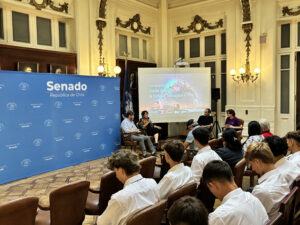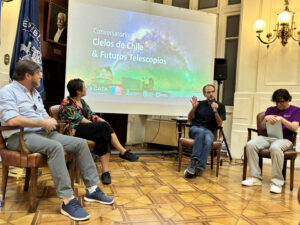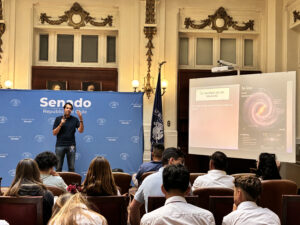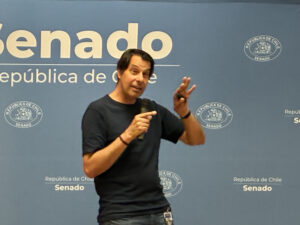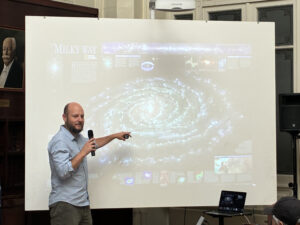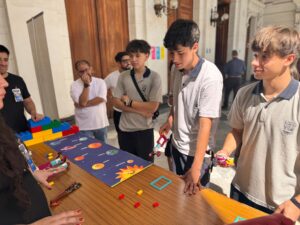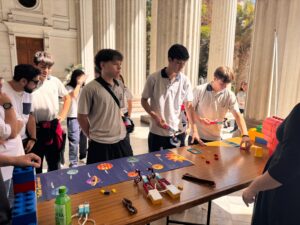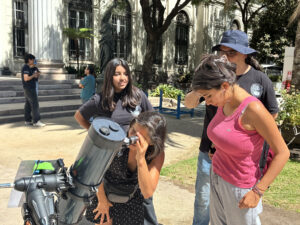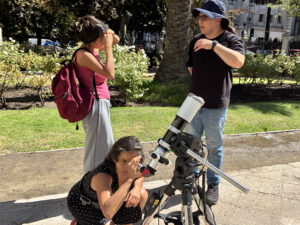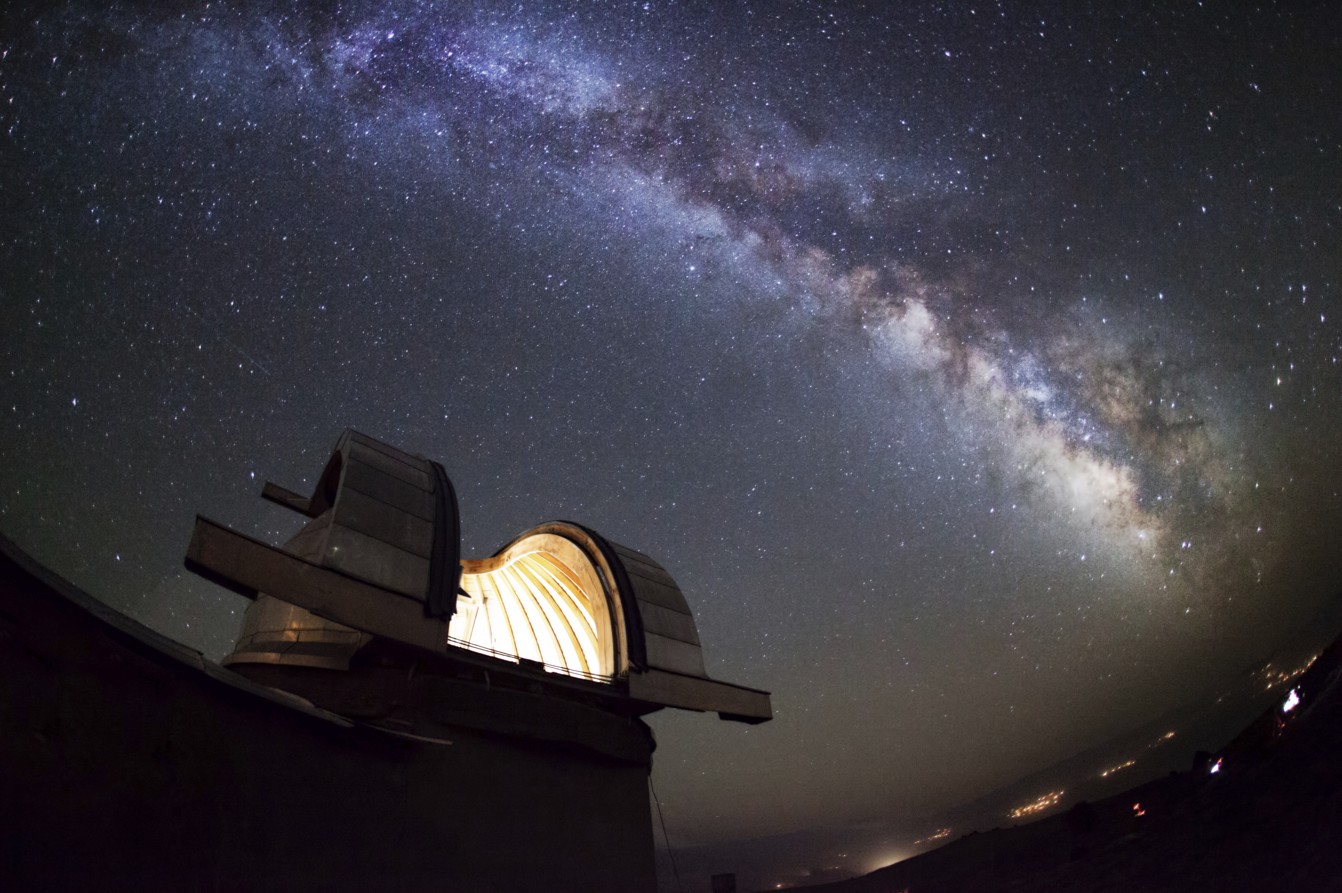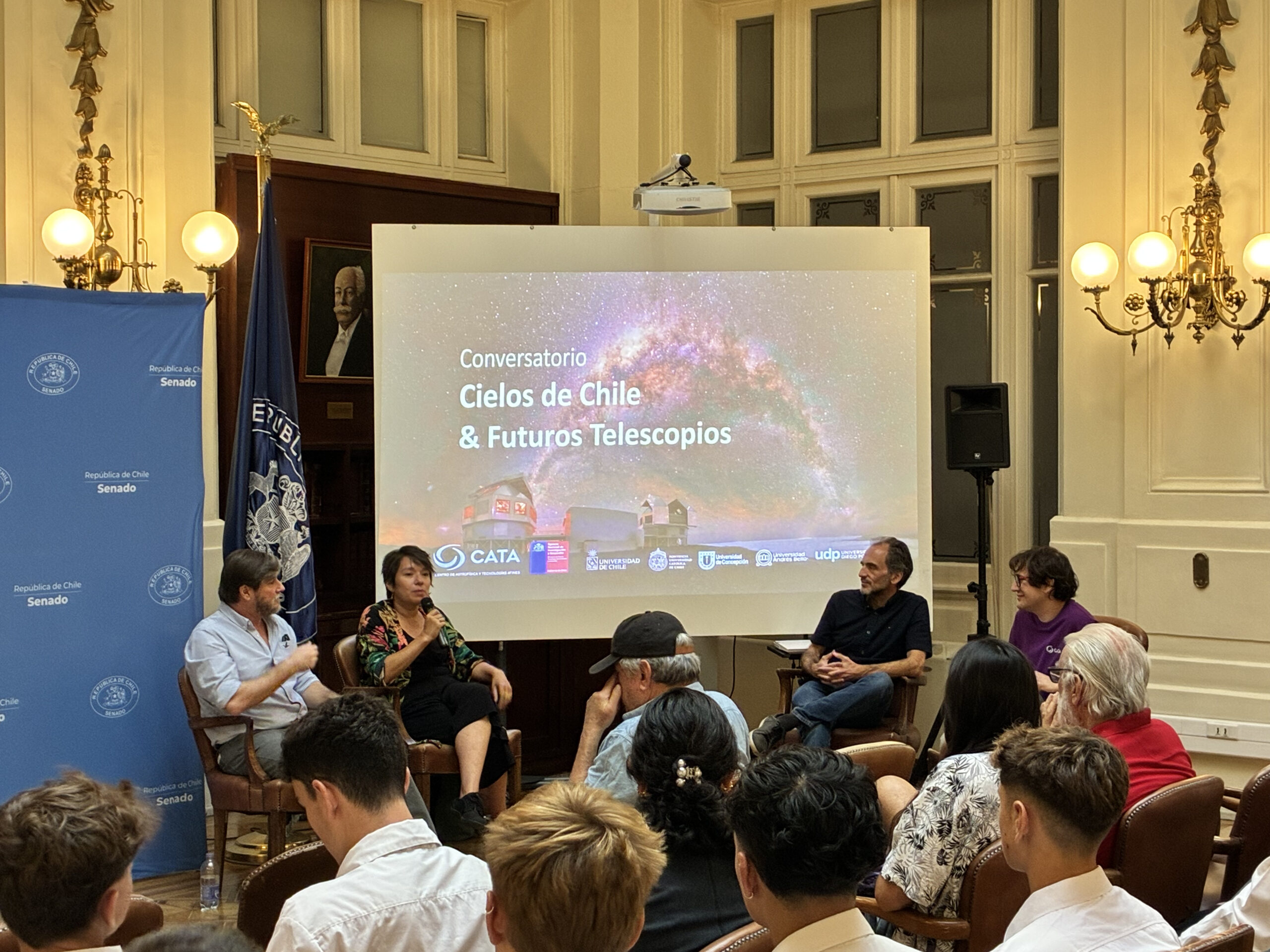
CATA and the Future Challenges Commission of the Senate celebrated Astronomy Day at the former National Congress
The Center for Astrophysics and Related Technologies (CATA) and the Senate's Future Challenges Commission kicked off the commemoration of Astronomy Day with a day of activities at the former National Congress on Tuesday, March 18. During the event, prominent astronomers and researchers shared their knowledge and reflected on the great mysteries of the universe.
The “Astronomy in the Former Congress” initiative, organized by CATA in collaboration with the Senate’s Future Challenges Commission, and with the collaboration of the Astronomy Department of the University of Chile, Astroamigos Wantata Wara and LEGO Education, offered lectures, talks, solar observation and interactive activities to bring science closer to the public.
The day began at 10:00 a.m. with the panel “Chilean Skies and Future Observatories”, where three CATA researchers analyzed the country’s impact on global astronomy. Academics Ezequiel Treister (Pontificia Universidad Católica de Chile), Dante Minniti (Universidad Andrés Bello) and Bárbara Rojas-Ayala (Universidad de Tarapacá) discussed the value of the Chilean skies, upcoming astronomical projects and the importance of their protection.
CATA’s director, Ezequiel Treister, highlighted the fundamental role of the new telescopes in the advancement of knowledge. “The new astronomical instruments do not represent just another advance, but a significant leap in our exploration capabilities. They will allow us to study more distant, fainter objects and those that were previously beyond our reach. In addition, they will drive the development of new technologies and open up hitherto inaccessible fields of research. Projects such as the Vera C. Rubin Observatory, the Giant Magellan Telescope and the Extremely Large Telescope (ELT) will revolutionize astronomy in the coming years and decades,” he said.
Treister also emphasized the responsibility of preserving Chile’s skies. “Our country has a privileged condition: its skies. This natural resource, considered an invaluable heritage, gives us a unique position in world astronomy, but it also imposes a responsibility on us. We must protect it and ensure that the optimal conditions for astronomical observation are not only maintained in the present, but also endure into the future.”
For his part, Dante Minniti, Principal Investigator of CATA and academic at Universidad Andrés Bello, emphasized the impact of new technologies in the exploration of the universe. “I am very optimistic about the future, as great projects are coming that will bring fundamental discoveries. Some we can foresee: we know what they will study and how they will operate. But there will also be unexpected findings, capable of transforming science and even our way of life. And that is truly inspiring.
Finally, Bárbara Rojas-Ayala, Associate Researcher of our institution and academic of the Universidad de Tarapacá commented that “we have built a solid astronomical ecosystem, with a remarkable growth in research, especially in the training of astronomers and astronomers, and the promotion of related technologies. In addition, as CATA we have engineers and professionals from different areas who actively contribute to the observatories, strengthening this sector. The challenge we have is to integrate and balance our development with other emerging technologies, which go hand in hand with the development of green energies, ensuring that we advance in a harmonious and strategic way for the benefit of the country and scientific knowledge”, said the astronomer.
In the Presidents’ Hall, astronomer Gaspar Galaz, associate researcher of CATA and academic of the Astrophysics Institute of the PUC, presented the talk “Diffuse galaxies and the importance of dark skies”, addressing the study of these structures and the need to preserve the darkness of the sky to guarantee quality observations. “For this type of research, it is essential to have dark skies. If the quality of the sky is poor, it is simply not possible to carry out these studies,” explained Galaz, inviting attendees to reflect on the importance of night sky conservation.
After a solar observation session with telescopes in the garden of the former Congress and recreational activities organized by LEGO Education, the day continued with a presentation by CATA researcher and member of the Institute of Astrophysical Studies of the Diego Portales University, Manuel Aravena, entitled “Revealing the Cosmic History: Galaxies, Expansion and the ELT”. In his presentation, the researcher explained the advances in the study of galaxies from telescopes such as ALMA and James Webb, in addition to detailing the impact of the Extremely Large Telescope (ELT), the world’s largest telescope under construction in Chile. “This highly sensitive telescope will boost the observing capacity of any other current telescope by up to 15 times. It will be able to detect biomarkers in planetary atmospheres, such as water and oxygen molecules, which are key to the existence of life. Within the next 20 to 30 years, the ELT could lead to the discovery of life on other planets,” said Aravena.
Recent news
-
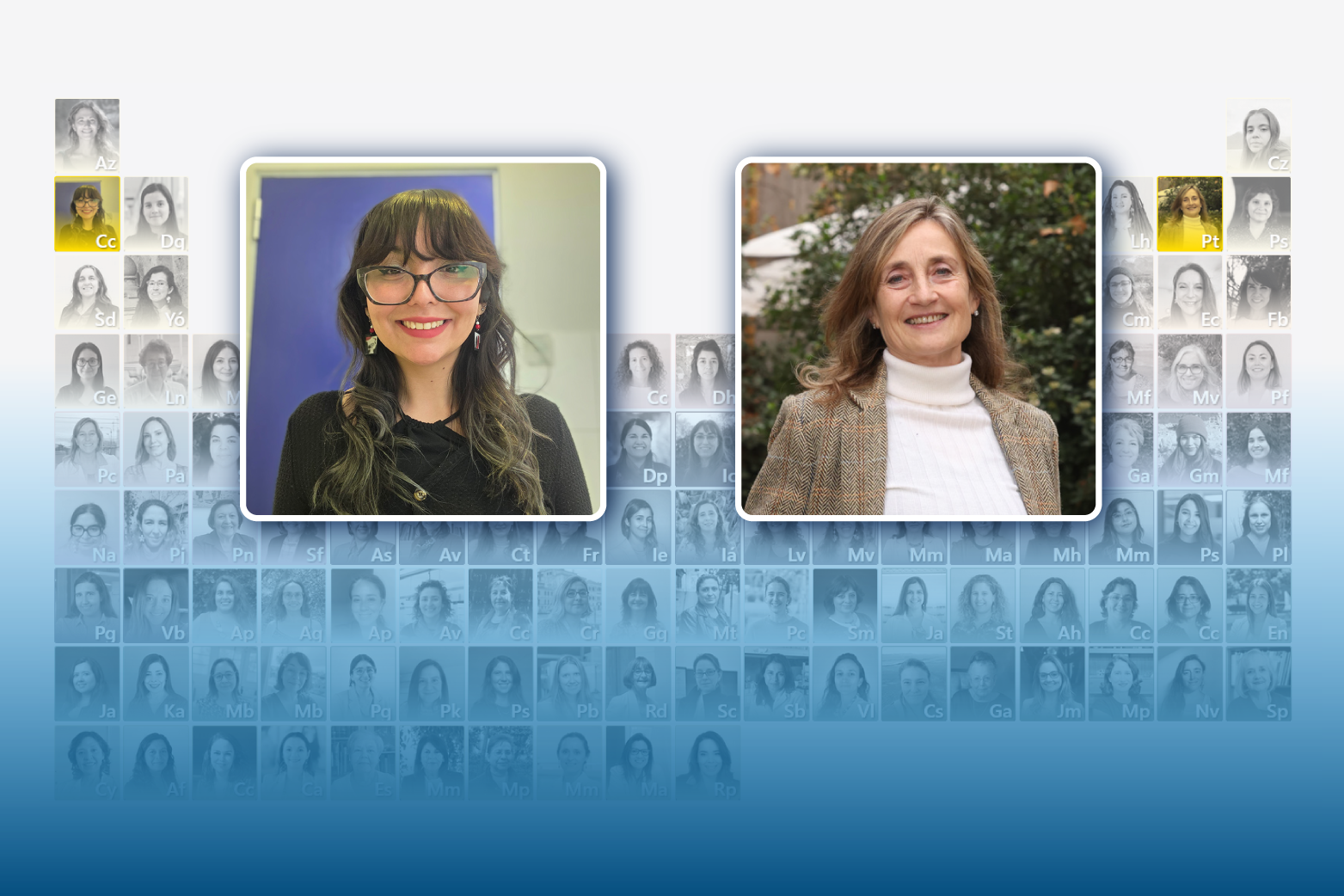 Publicado el: 17/02/2026The National Congress Library highlights CATA researchers in its second edition of Chilean Women Scientists
Publicado el: 17/02/2026The National Congress Library highlights CATA researchers in its second edition of Chilean Women Scientists -
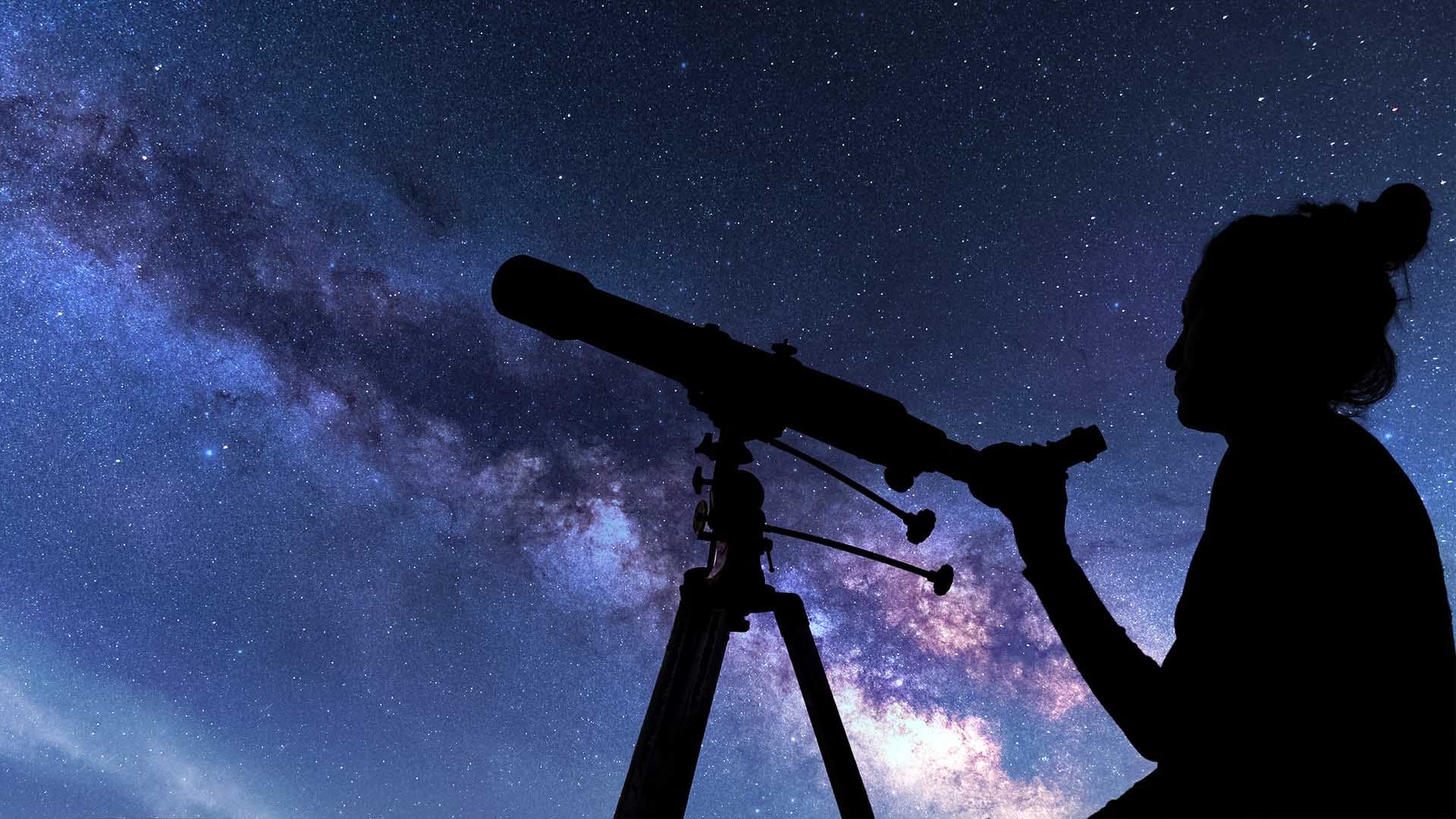 Publicado el: 11/02/2026Science with a woman’s face: gaps, vocations, and pending challenges
Publicado el: 11/02/2026Science with a woman’s face: gaps, vocations, and pending challenges -
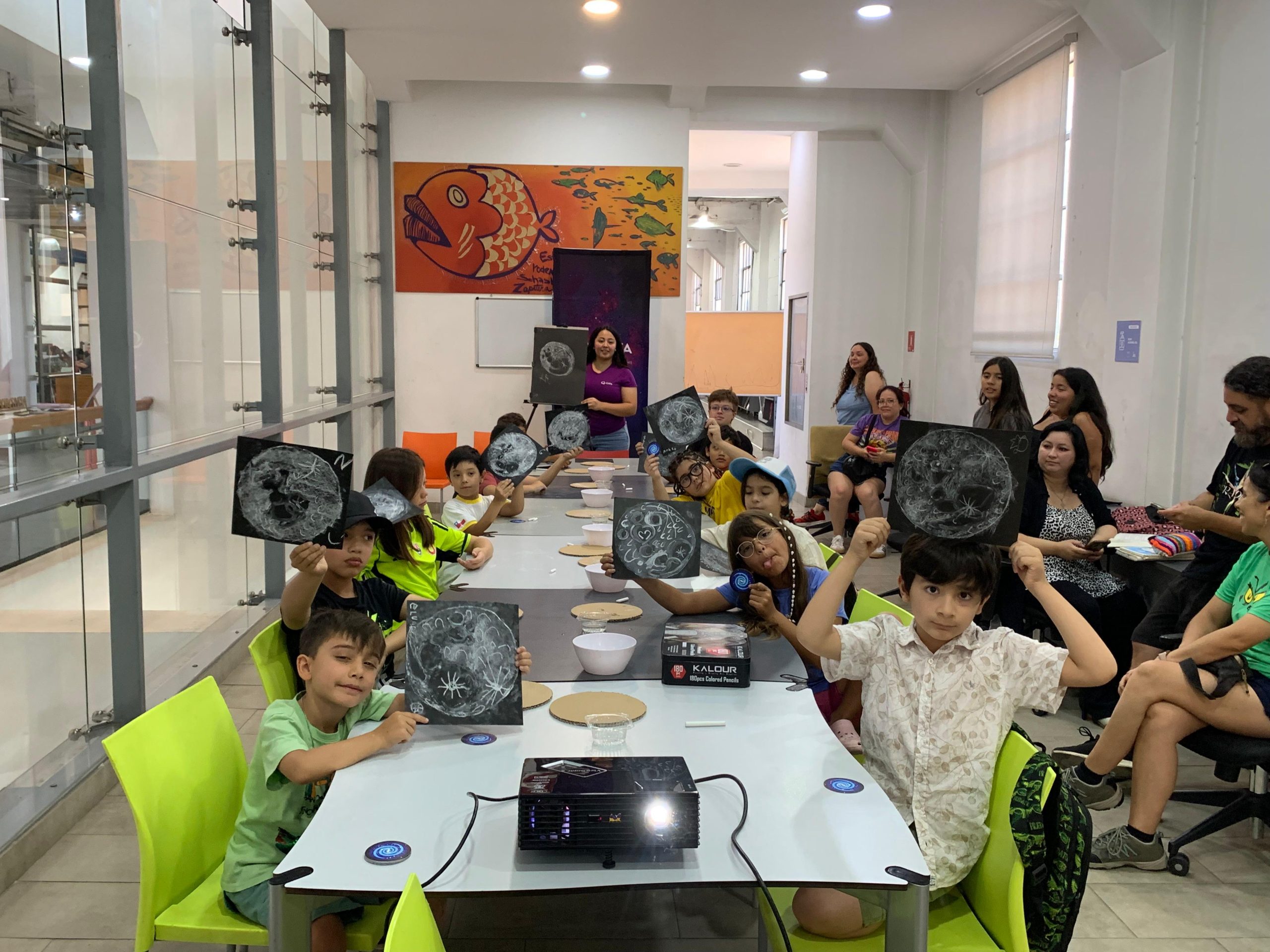 Publicado el: 09/02/2026Astronomy Day was held at the Santiago Library
Publicado el: 09/02/2026Astronomy Day was held at the Santiago Library -
 Publicado el: 30/01/2026Looking ahead to the next five years: Galaxies Area meets to share progress and strengthen research
Publicado el: 30/01/2026Looking ahead to the next five years: Galaxies Area meets to share progress and strengthen research -
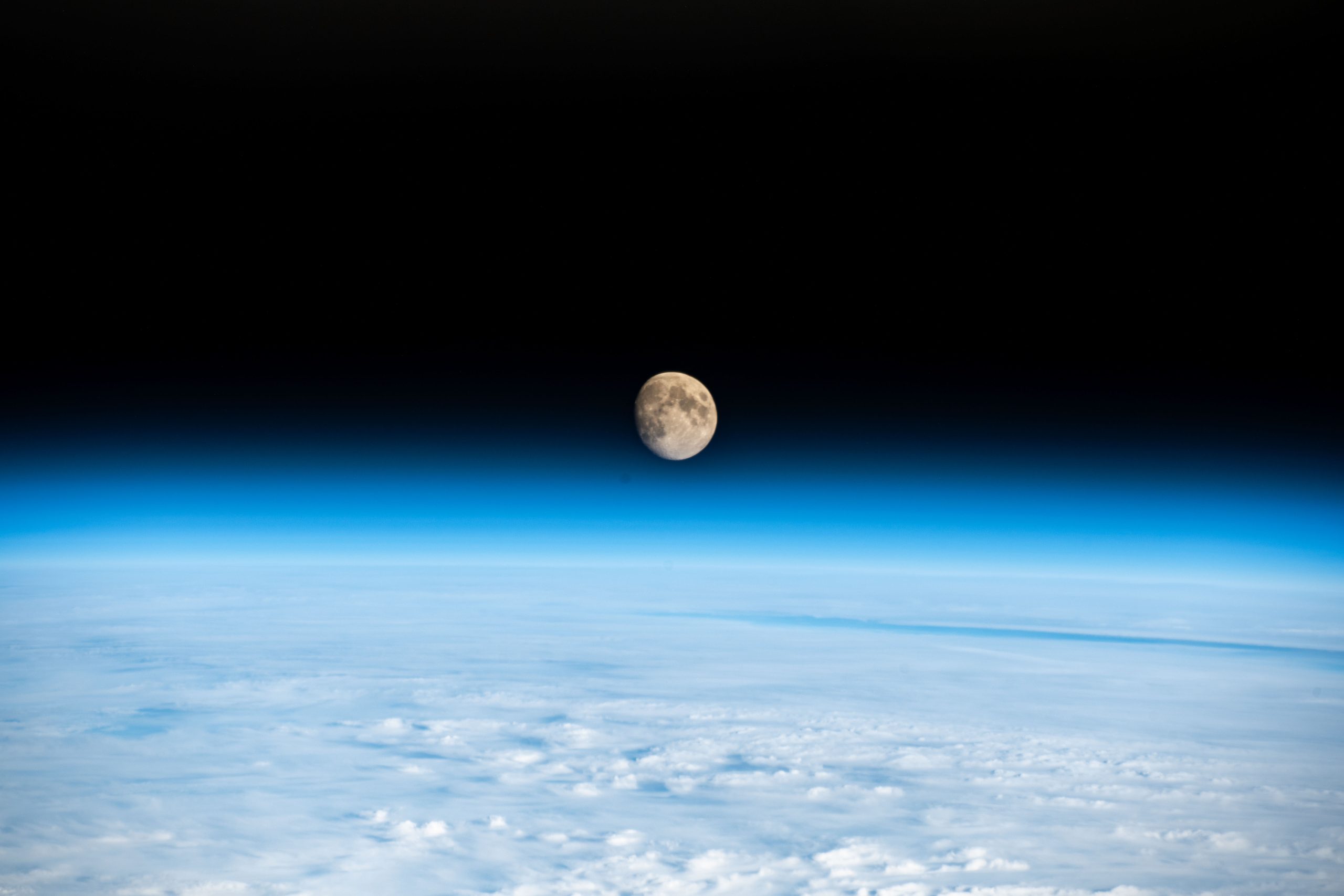 Publicado el: 29/01/2026Will Earth have two moons until 2083? The idea behind object 2025 PN7
Publicado el: 29/01/2026Will Earth have two moons until 2083? The idea behind object 2025 PN7
Categories list
- Acknowledgments 24
- Astrobiology 8
- AstroCluster 1
- Black holes 19
- Corporativo 62
- Cosmology 5
- Descubrimientos 25
- Disclosure 78
- Exoplanets 15
- Extension 6
- Galaxies 23
- Galaxies formation 7
- Inter y Transdisciplina 4
- Local Universe 17
- Publications 7
- Sin categorizar 36
- Solar System 24
- Stellar formation 8
- Technology 18
- Technology Transfer 20
